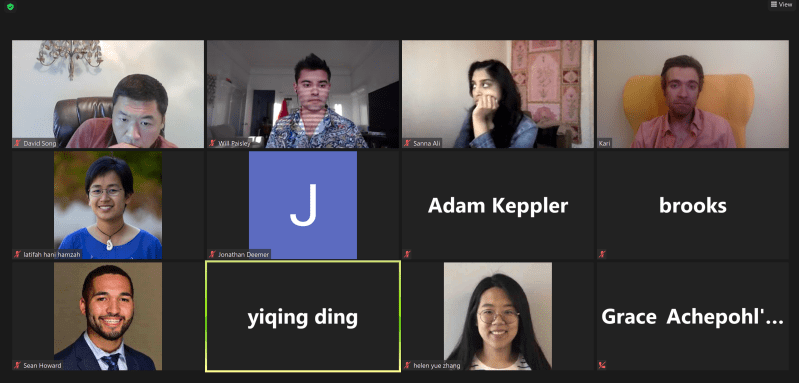The Graduate Student Council (GSC) emphasized the importance of taking action against anti-Asian racism and brainstormed ways to make tangible impacts in the fight against bigotry and violence at its Wednesday meeting. Leaders from the Undergraduate Senate also joined to coordinate with the GSC around finalizing and voting on a slate of potential joint resolutions.
Stanford administration and legislative bodies alike have responded to the alarming uptick in hate crimes against Asian communities with condemnations of anti-Asian racism and statements of solidarity. The Undergraduate Senate unanimously passed a resolution earlier this month asking the University to increase mental health resources, workplace and academic inclusivity and academic accommodations for Asian individuals within the Stanford community.
Councilors committed to building on the Senate’s efforts and to find ways to make actionable change in the near future.
“We always can just put out a statement saying we condemn violent acts, but my intention is that we need some actions,” said Councilor Yiqing Ding, a fifth-year mechanical engineering Ph.D. student.
GSC co-chair and fifth-year theater and performance studies Ph.D. student Kari Barclay proposed that the Council organize a series of events aimed at educating the Stanford community about the University’s troubled roots in Asian discrimination.
“Leland Stanford got a lot of his wealth off the backs of Chinese immigrants and laborers who weren’t always even given citizenship afterward,” Barclay said, referring to his transcontinental railroad project which relied on underpaid and mistreated Chinese migrant workers. “Beyond just saying we condemn acts, I think it’s really important that our community educates ourselves.”
Ding said that, while understanding the University’s history is an important goal, the GSC should also work on projects that will directly benefit the Asian American and Pacific Islander (AAPI) communities at Stanford.
“Within my community, my understanding is that some students are already very conscious of this crisis,” Ding said. “But I think also for a lot of the students, if something happened to them, they will be basically left thinking, ‘I don’t know what to do actually in the face of the attacks.’”
Councilors also raised concerns about how international graduate students are sometimes treated as their own category by the University, rather than integrated into ethnic affinity groups, such as the Asian American Activities Center. Ding said that the existing infrastructure of support resources within community groups would go a long way toward benefiting Asian international students.
“If we no longer treat the students as a separate group of international students, it may be helpful to support them using the existing structure,” Ding said.
Undergraduate Senate Chair Micheal Brown ’22 joined the meeting to introduce several Senate resolution drafts to the GSC. One potential resolution would urge the University to drop its testing requirements, both the SAT and ACT for undergraduate and the GRE for graduate admissions. Last year the GSC passed a resolution calling on the University to eliminate the GRE requirement. This year, the University dropped its undergraduate testing requirement for a second year amid the COVID-19 pandemic.
The Senate also plans to work with the GSC on a resolution pushing for more mental health accommodations for students, with a focus on giving students more free time to de-stress during the academic year. Brown raised the possibility of rest days during the quarter, an initiative that he compared to the individual wellness days that Harvard adopted this year.
Councilor Grace Achepohl ’20 M.S. ’21 said that in order to best support the mental health of Stanford community members, the University should prioritize being flexible and understanding students’ needs. She said that advocating for flexible attendance requirements is one way the Senate and the GSC could make positive change.
“As someone who has personally struggled with mental health, one thing that I would personally have benefited from more is just being able to choose when my mental health holiday needs to be personally,” Achepohl said, “not being a mandated University-wide Mental Health Day.”
Barclay said that the Council will gain a better understanding of the issues students face once it analyzes a 2020 GSC survey of the graduate school community’s mental wellbeing.
The legislative bodies plan to bring some of the resolutions to the table for discussion in the coming weeks once they have finalized the documents.
